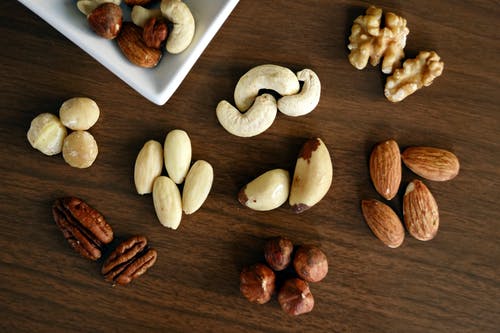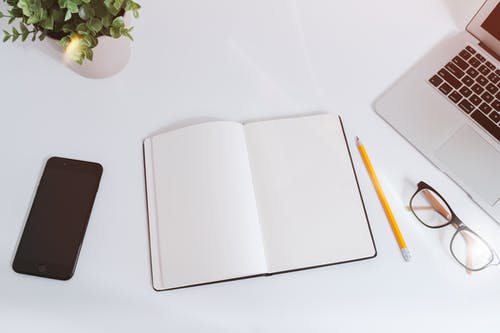
Do your eyelids often feel heavy during lesson time?
Well, if your answer is yes, then there’s nothing to be ashamed of.
It’s actually a very common occurrence for students to doze off during lesson time.
Many students tend to fall asleep during long lectures because it’s just way too long.
A study conducted by John Medina shows that 10 minutes into a lesson, student attention level will fall short.
That’s a bad thing right?
Yes, catching z’s during lesson time is not good as it can severely affect your grades and strain your relationship with your teacher.
If this is one of your major concerns, fear not as this article has got you covered.
Reasons Why Students Fall Asleep
Apart from class lessons being too long, there are several other reasons why students find it hard to stay awake in classes.
Reasons include: working part time after school, staying up late studying or doing recreational activities, or even having a heavy meal before lesson time.
With all these stated reasons and many more, staying awake during long lectures seems to be impossible right?
Well, not true.
I’ll be sharing with you some tips on how to stay awake now.
Read on to find out!
Don’t Eat Heavy Meals Before Class
I’m sure you have experienced the term “food coma” after consuming a heavy meal, especially those high in carbohydrates.
Let me break down the science behind this.
When you have a meal high in carbs, it makes your brain release serotonin, a chemical which makes you happy.
However, with the increased production of serotonin, your brain will start to produce melatonin, a chemical which makes you sleepy.
This is why you tend to feel sleepy after a heavy meal.
However, it’s not a good idea to attend class on an empty stomach as well.
You should eat a balanced meal which includes fruits and vegetables, complex carbs, healthy fats, and lean protein.
Eating small balanced meals will give your body an opportunity to use less energy to digest smaller portions of food at a time.
This way, you can avoid experiencing a “food coma”.

Hydrate Yourself
More often than not, dehydration is the cause of you feeling tired and sleepy in class.
For your body to function properly, it needs water.
When you’re dehydrated, your blood will thicken as there’s very little fluid.
As your blood thickens, the amount of oxygen it can carry will decrease.
This causes your body to use more energy to pump blood and supply oxygen so it can function properly.
Which is why you feel tired when you don’t drink enough water.
Another reason linked to dehydration is the loss of electrolytes.
Electrolytes are chemical ions found in your bloodstream which play a major role in managing your fluid levels, nerve reactions, and muscle functions.
When you’re dehydrated, your body will lack electrolytes and cause you to feel fatigue, lightheadedness, and muscle weakness.
With that being said, I suggest that you bring a water bottle when you attend lessons so you can hydrate yourself throughout the lesson.

Bring Light Snacks to Class
If you have the privilege of bringing in light snacks to class, make full use of it.
Bringing snacks high in sugar such as candy and chocolate bars can give you a boost in energy when you’re feeling tired in class.
Although sugary snacks can give you a quick energy boost, it’ll often lead you to experience an energy crash.
An energy crash can leave you feeling more tired than you were before consuming sugary snacks, so snack wisely.
If you want to snack but not experience an energy crash afterward, I suggest snacking on healthy food such as peanut butter bread, fruits, yogurt, nuts, etc.
These foods contain enough glucose and protein to help you last throughout your lesson.
But note that it’ll take awhile for the energy boost to kick in.

Bring Along Some Mints
Did you know that mints actually have several benefits when it comes to helping you stay awake?
When you consume mints, the menthol in it will tingle your senses and invigorate your hippocampus (the part of your brain responsible for learning and memory absorption).
Apart from consuming mint, you can also inhale the smell of it.
The smell is able to help trigger your mind so you’ll feel more awake and pay better attention in class.
Studies have shown that when you’re exposed to mint, either by taste or smell, it’ll make you more energetic.
Mint also has the ability to lower the amount of cortisol(the main chemical linked to stress) from your brain, which means less stress!

Drink Some Green Tea
It has been proven that drinking green tea is way more beneficial compared to drinking coffee when it comes to boosting your energy levels.
The components in green tea are able to give you the same amount of energy boost as coffee, despite only containing 1/3 the amount of caffeine as coffee does.
Furthermore, you wouldn’t experience crashes as compared to drinking sugary drinks and coffee as drinking green tea doesn’t give you a quick boost of energy.
Drinking green tea also helps to keep you satiated throughout the day.
You’re less likely to consume a huge meal when you’re full, which helps to avoid the “food coma” experience.

Take a Cold Shower
I know, I know.
Taking a cold shower in the morning may sound like one of mankind’s worst mental tortures.
However, taking a cold shower has more benefits than taking a hot one.
Taking a cold shower straight after waking up helps you feel more alert as it increases your heart rate, blood pressure, and respiratory rate.
Apart from making you more awake, cold showers also boost your immune system.
A study conducted by Dr Buijze has shown that people who take cold showers consistently experience less severe symptoms when they fall sick.
Hence, if you’re someone who usually falls sick regularly with strong symptoms, taking cold showers might help to lessen the effects and help you push through.

Get a Good Night’s Worth of Sleep
This might seem like a no brainer, but sleep is often overlooked.
Many students tend to neglect sleep just so that they have more time to do recreational activities like gaming.
This will cause them to doze off in class as their body lacks the amount of sleep required to function properly.
Getting enough sleep is one of the most effective methods for you to stay awake in class.
It’s recommended that you get 7 to 9 hours worth of sleep every night so that your body can function properly.
Do note that this should be done on a consistent basis.
This means it’s essential that you have a sleep schedule and abide by it religiously by going to sleep at the same time every night, and waking up at the same time every morning (even if you have nothing on that day).
This will train your body to know when it’s time to sleep and when it’s time to wake up.
Don’t underestimate the power of high quality sleep!

Take Walks During Break Time
Another rather effective method is to take walks during break time.
Taking walks can get your blood pumping and alert your brain that it’s not time to fall asleep.
If you really need it, you can take a quick walk during lessons by walking to the toilet and washing your face with cold water.
It’ll give you the much needed boost of energy.
Apart from taking walks during lessons, you can also climb the stairs to your classroom before the start of your lesson to increase your heart rate and feel more awake!
Take Notes During Lessons
Taking notes during lessons while listening to your lecturer is a good way to engage your brain and prevent it from falling asleep.
When you take notes, it forces you to pay attention to the lesson and note down all the important and relevant information.
Not only will it help you stay awake in class, but it’ll also save you a lot of time when you’re studying for your exams, as you don’t have to read and get information from your thick textbooks.

Conclusion
Now that we know that on average, a person can only efficiently pay attention for 10 minutes, it’s very normal for you to fall asleep during long lessons.
But with the tips I’ve provided you with, I’m pretty sure it can help you with staying awake and maximising your learning.
If you find yourself constantly falling asleep and missing lessons, consider getting a private tutor to help you catch up with your peers.
With that said, it’s time to conquer all your upcoming lectures without falling asleep!
Here are some related articles you might like to read:
What Happens if Primary Schoolers Doesn’t Get Enough Sleep?
